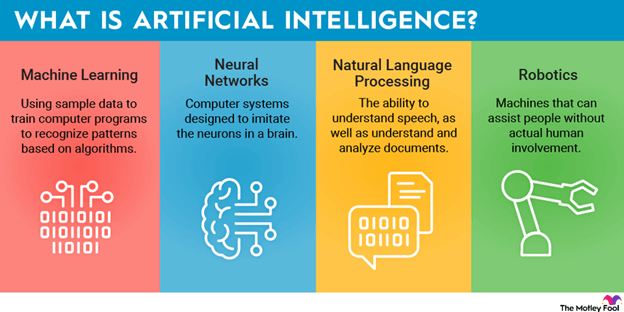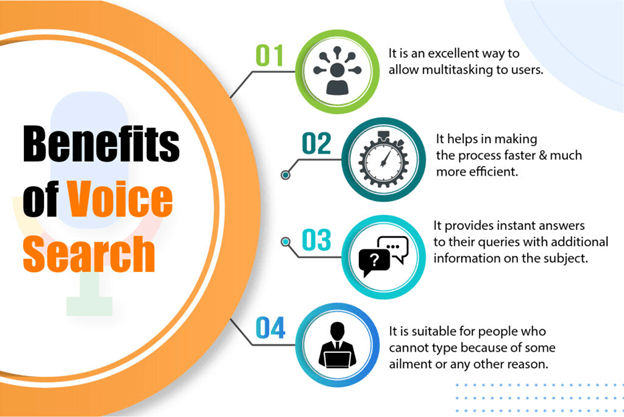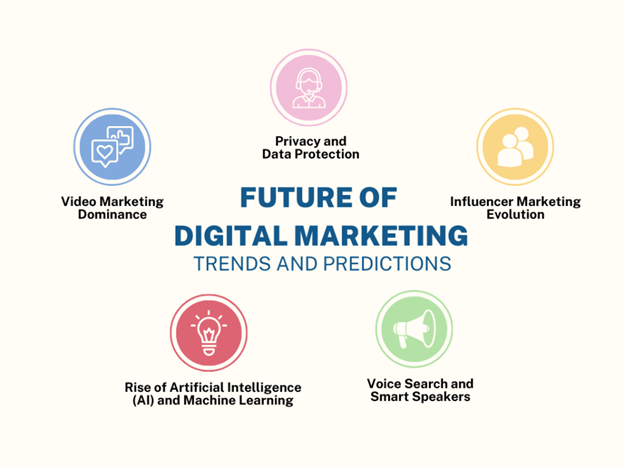Content
SHARE

Digital marketing has become an essential aspect of any successful business strategy. In today’s rapidly evolving technological landscape, staying updated with the latest trends in digital marketing is crucial. This article will delve into the importance of digital marketing trends, explore the current trends shaping the industry, predict future developments, and provide tips for implementing these trends effectively.
[thrive_leads id=’8320′]
Understanding the Importance of Digital Marketing Trends
Digital marketing is playing an increasingly significant role in the ever-evolving business landscape. Many businesses have realised that digital marketing strategies are necessary to survive and thrive in today’s competitive market. These strategies allow businesses to reach a larger audience, engage with customers in a meaningful way, and ultimately drive revenue.
However, the importance of digital marketing goes beyond reaching a wider audience. It also allows businesses to connect with customers on various online platforms, such as social media, search engines, and email. This multi-channel approach allows targeted marketing campaigns, improved customer engagement, and increased brand visibility.
Moreover, digital marketing provides valuable data and analytics, helping businesses gain insights into customer behaviour and preferences. By analysing this data, digital marketers can optimise campaigns and refine strategies to achieve better results. They can identify which marketing channels are most effective, which messages resonate with their target audience, and how to allocate resources for maximum impact.
The Role of Digital Marketing in Today’s Business Landscape
With the advent of the internet and the proliferation of smartphones, how consumers interact with businesses has drastically changed. Traditional marketing methods, such as print advertisements and television commercials, are no longer enough to capture consumers’ attention. This is where digital marketing comes into play.
By leveraging digital marketing strategies, businesses can effectively engage with customers in a convenient and relevant way. For example, social media platforms allow businesses to create interactive content, respond to customer inquiries, and build a community around their brand. Search engine optimisation (SEO) techniques help businesses appear higher in search engine results, increasing their visibility and driving organic website traffic.
Furthermore, email marketing enables businesses to nurture leads and maintain ongoing customer communication. By sending personalised and targeted emails, businesses can provide valuable information, promotions, and updates to their subscribers. This helps build trust and loyalty, leading to increased sales and customer retention.
Why Staying Updated with Digital Marketing Trends is Crucial
The digital marketing landscape is constantly evolving, with new technologies and strategies emerging regularly. Staying up-to-date with the latest trends is crucial for businesses to remain competitive. Failing to adapt to these changes may result in missed opportunities and a diminishing market presence.
One key reason why staying updated with digital marketing trends is crucial is the rise of artificial intelligence (AI). AI-powered tools and technologies are revolutionising the way businesses interact with customers. Chatbots, for example, can provide instant customer support and personalised recommendations, enhancing the overall customer experience. By embracing AI, businesses can streamline operations, improve efficiency, and deliver exceptional service.
Another important trend is the impact of voice search. With the increasing popularity of voice assistants like Siri, Alexa, and Google Assistant, consumers use voice commands to search for information, make purchases, and interact with businesses. Optimising digital marketing strategies for voice search is essential to ensure businesses remain visible and accessible to this growing segment of consumers.
Furthermore, personalised marketing has become increasingly important in today’s digital landscape. Consumers are bombarded with countless marketing messages daily, and generic advertisements are often ignored. Businesses can create personalised marketing campaigns that resonate with their target audience by leveraging data and analytics. This level of personalisation increases engagement, builds brand loyalty, and drives conversions.
Digital marketing is an essential component of any successful business strategy. It allows businesses to connect with customers, gain valuable insights, and adapt to the ever-changing market landscape. By staying updated with digital marketing trends, businesses can stay ahead of the competition and effectively reach their target audience.
Delving into the Current Digital Marketing Trends
Let’s examine some of the most influential digital marketing trends.
In today’s fast-paced digital world, staying ahead of the curve is crucial for businesses looking to thrive in the competitive market. As technology continues to evolve, so do the strategies and techniques used in digital marketing. Let’s explore some of the key trends that are currently making waves in the industry.
The Rise of Artificial Intelligence in Digital Marketing
Artificial intelligence is revolutionising digital marketing strategies. AI-powered chatbots, for instance, enable businesses to provide instant customer support, save time, and enhance customer satisfaction. These intelligent bots can understand and respond to customer queries, providing seamless and efficient interaction. Moreover, AI allows for personalised recommendations and targeted advertising, enabling businesses to deliver more relevant content to their audience.
With the power of AI, businesses can analyse vast amounts of data to gain valuable insights into customer behaviour and preferences. This data-driven approach helps marketers make informed decisions and create highly targeted campaigns that resonate with their target audience. By harnessing the potential of AI, businesses can unlock new opportunities for growth and success in the digital realm.
The Impact of Voice Search on Digital Marketing Strategies
Voice search is rapidly gaining popularity, thanks to the proliferation of voice-controlled devices such as smart speakers and virtual assistants. People increasingly use voice commands to search for information, purchase, and interact with technology. This shift in consumer behaviour has significant implications for digital marketing strategies.
Optimising content for voice search is becoming imperative for businesses to ensure their information is easily accessible and relevant to voice queries. Unlike traditional text-based searches, voice searches are more conversational and longer. Marketers must adapt their SEO strategies to include long-tail keywords and natural language phrases that align with people’s speech.
Businesses need to consider the context in which voice searches are conducted. Understanding the user’s intent and providing concise, accurate answers is crucial for capturing the attention of voice search users. By optimising their content for voice search, businesses can improve their visibility and stay ahead of the competition in this rapidly evolving landscape.
The Growing Importance of Personalised Marketing
Customers now expect personalised experiences from businesses. With abundant data available, businesses can leverage data analytics and automation to deliver targeted content, personalised recommendations, and tailored marketing campaigns.
Analysing customer data allows businesses to gain insights into individual preferences, behaviours, and purchase histories. This information allows marketers to create highly personalised campaigns that resonate with their target audience. Personalised marketing helps businesses build stronger customer relationships and increases the likelihood of conversion and customer loyalty.
Moreover, personalisation extends beyond marketing campaigns. Businesses can personalise their website experience, email communications, and even product recommendations. By tailoring every customer touchpoint, businesses can create a seamless and engaging journey that leaves a lasting impression.
However, it is crucial to strike a balance between personalisation and privacy. Respecting customer privacy and ensuring data security are paramount in building trust and maintaining a positive brand image.
The digital marketing landscape is constantly evolving, driven by technological advancements and changing consumer behaviours. Businesses that embrace these trends and adapt their strategies accordingly are well-positioned to thrive in this dynamic environment.
By harnessing the power of artificial intelligence, optimising voice search, and delivering personalised experiences, businesses can stay ahead of the curve and connect with their audience on a deeper level.
Predicting Future Digital Marketing Trends
As technology continues to advance, we can anticipate exciting trends that will shape the future of digital marketing. Let’s explore a few possibilities:
The Potential of Virtual Reality in Digital Marketing
Virtual reality (VR) presents immense possibilities for immersive customer experiences. Businesses can use VR to provide virtual tours, product demos, and interactive experiences, enabling customers to engage with products and services in a completely new way.
The Increasing Role of Social Media in Digital Marketing
Social media platforms continue to dominate the digital marketing landscape. As technology improves and user preferences evolve, businesses must adapt and employ innovative strategies to effectively reach their target audience on platforms like Facebook, Twitter, Instagram, and LinkedIn.
The Future of Mobile Marketing
Mobile devices have become an integral part of our daily lives, and mobile marketing continues to gain significance. With the rise of mobile apps and location-based marketing, businesses need to optimise their websites for mobile, create mobile-specific content, and invest in mobile advertising to engage users effectively.
Implementing the Latest Digital Marketing Trends
Now that we understand the importance of staying updated with digital marketing trends let’s explore some strategies for incorporating these trends into your marketing efforts.
Steps to Incorporate AI into Your Marketing Strategy
Start by identifying areas where AI can enhance your marketing efforts, such as customer support, analytics, and personalisation. Then, explore AI-powered tools and platforms that align with your business needs. Finally, create a comprehensive plan for implementing AI into your marketing strategy, ensuring that it aligns with your overall business goals.
Tips for Effective Personalised Marketing
Begin by gathering data on your target audience and segmenting them based on demographics, preferences, and behaviour. Leverage automation tools to deliver personalised content and recommendations. Continuously analyse and refine your campaigns based on customer feedback and data insights.
Strategies for Leveraging Social Media in Digital Marketing
Develop a social media strategy by identifying your target audience, selecting appropriate platforms, and creating engaging content. Utilise social media analytics tools to measure performance and refine your approach. Interact with your audience by responding to comments and messages, fostering meaningful connections.
In conclusion, digital marketing trends play a pivotal role in shaping the success of modern businesses. By staying updated and implementing the latest trends, businesses can effectively engage with their target audience, enhance brand visibility, and drive revenue in the dynamic digital landscape.
[thrive_leads id=’3523′]
Frequently Asked Questions About Digital Marketing Trends
What is meant by marketing trends?
A marketing trend is anything that changes the area in which your organisation operates. Paying attention to and utilising these trends is important to help your company succeed and stay ahead of the competition. Marketing trends usually focus on technology, customer interaction, social media and privacy.
How do you identify digital trends?
By researching your audience, you can identify the digital trends that are most relevant and valuable for them. For example, if your audience is mostly young and tech-savvy, you might want to track trends related to social media, mobile apps, gamification, or augmented reality.
What is the role of AI in digital marketing?
Marketing assets guided by AI are personalised and optimised for the customer journey. This can include chatbots, targeted advertising, and content generation. Typically, to use AI in marketing, the AI collects data, learns customer behaviours, and analyses it to help a business achieve its goals.
How AI can be used in digital marketing?
For instance, AI can help digital marketers forecast customer behaviour, product demand, or potential website traffic fluctuations. Accurately predicting such factors enables better resource allocation and campaign planning.
What is future of digital marketing?
The future of marketing will be more innovative and inviting than in prior years with the use of voice-activated devices such as Alexa, Google Assist, and Siri etc. With the use of smart speakers, a customer can easily explore a product from anywhere in the home.















